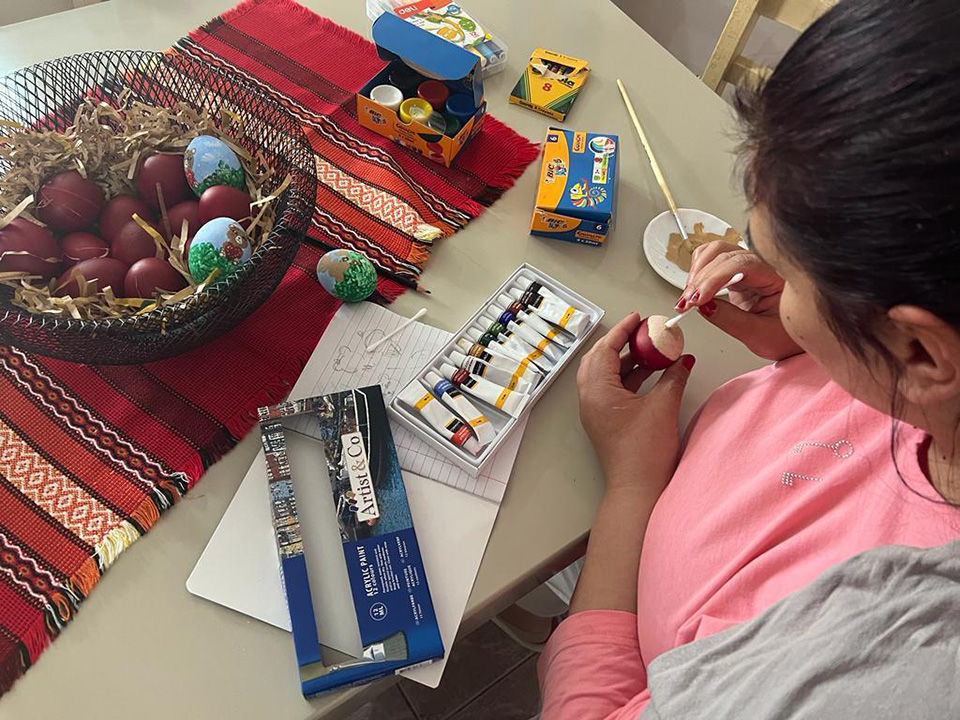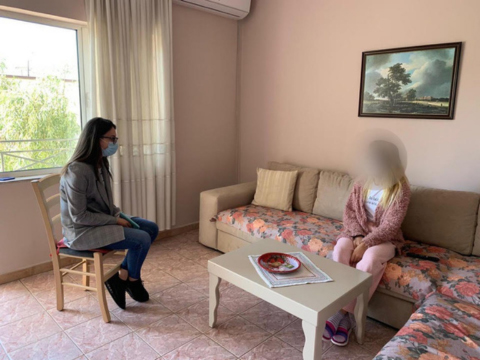Supporting lesbian, bisexual and transgender women and girls in Albania
“I enjoyed being able to feel like a woman without being judged or having to explain things.’’ – Ana,* a transgender woman and participant of the project led by the Center "Shelter Edlira Haxhiymeri"
Date:

Violence against women and girls is widespread in Albania, with 1 in 2 women have ‘ever’ experienced at least one form of violence during their lifetime[1]. Lesbian, bisexual and transgender (LBT) women are particularly at risk as they experience intersecting and extreme forms of violence and discrimination, including forced marriage, eviction from their homes, and institutional and legal barriers to access support services.
Supported by a small grant from the UN Trust Fund to End Violence against Women, the Center "Shelter Edlira Haxhiymeri" (SEH)[2], in close partnership with the Streha Center for LBT women survivors of domestic violence, runs a project to end violence against women and girls in four remote areas of Albania.[3]
Empowering survivors
The project delivers empowering, gender-responsive and multisectoral services. These include psychosocial support; food packages; legal assistance for protection orders, divorce or child custody procedures; counseling; and shelters. A total of 212 women and girl survivors, including 100 LBT women and girls, have already benefited from these services as a result of the project.

SEH also works to ensure a smooth transition from shelter to independent living by providing survivors of violence with vocational training and support in securing accommodation and employment. As a result, over three-quarters of women and girls supported through the project have reported living independent lives free from violence.
In addition, SEH conducts outreach activities to raise awareness about the rights of women and girls as well as local referral mechanisms available to them.
Working with service providers
SEH and Streha Center build the capacity of service providers, including police officers, social workers, educators, and medical professionals, through three-day training sessions during which participants can share experiences and learn about tools and protocols that address gender-based violence. Three-quarters of them reported that they had gained practical skills to deliver efficient, non-discriminatory services to women and girls at risk or survivors of violence, including LBT women and girls.
“The provided support [was] very effective, especially in addressing LBT women and girls’ needs,” said Marsela Allmuça, Executive Director at SEH.
Intersecting crises
The compound effect of the COVID-19 crisis and the economic consequences of the war in Ukraine have greatly impacted the well-being of LBT women and girls in Albania. The soaring cost of living has left many of them unable to live independently, forcing them to remain in abusive households or struggling to find shared accommodation due to discrimination. SEH continues to ensure that shelters are available to the most marginalized women and girls.
Additionally, thousands of Ukrainians fled to Albania[4] to seek refuge from the war. “The majority of those displaced are women and children, who are most at risk of exploitation and abuse during crises,” explained Marsela Allmuça. Thanks to lessons learned during the COVID-19 pandemic, SEH is now equipped to respond to these emerging challenges and can provide online essential support services to women and girls in all their diversity, including Ukrainian women and girls.
As part of its Strategic Plan (2021-2025), the UN Trust Fund is committed to supporting projects that implement an intersectional approach, thereby ensuring that no woman or girl is left behind.
This story was originally published on the UN Trust Fund to End Violence against Women website.
[1] INSTAT (2019). 2018 National Population Survey: Violence Against Women and Girls in Albania.
[2] Previously named “Shelter for Abused Women and Girls”.
[3] Vorë, Lushnje, Shkoder and Skrapar.
[4] https://dtm.iom.int/reports/albania-needs-and-intentions-surveys-refugees-ukraine-round-01-december-2022